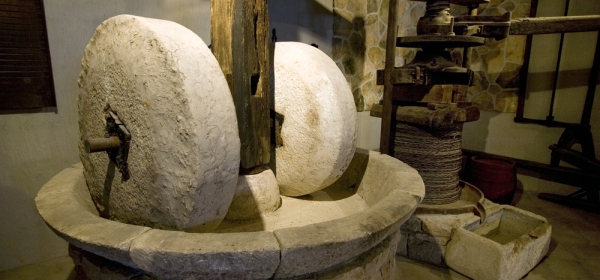Most of us are aware that ‘to keep your nose to the grindstone’ means to apply yourself conscientiously to your work, but do we know how the idiom originated? There are two theories on where this popular saying comes from. Which do you think is the most plausible?
Theory #1: the Miller’s assistant
In the days when milling cereals to make flour began, rudimentary machines called grist mills used two stones to process grains into flour. If the grain ran out, the stones would grind together, dulling the stones and creating a gunpowder smell. So the miller would tell his assistant to ‘keep his or her nose to the grindstone’ and shut down the machine if he or she smelled anything funny. This is how the phrase came to be used to describe those with a conscientious work ethic.
Theory #2: more than a slap on the wrist
You wouldn’t want to shirk your duties at work if this was how you were punished. This second theory revolves around holding a person’s nose to the grindstone as a form of punishment for not working hard enough. The first known citation is in a 1532 text called A mirrour or glasse to know thyselfe by John Frith.
“This Text holdeth their noses so hard to the grindstone, that it clean disfigureth their faces.”
You can see how the possible threat of this punishment might’ve been enough to encourage workers to double their efforts and help this phrase become synonymous with rigorous hard labour.
Which theory is most likely to you?
Related articles:
Idiom origin: ‘on the ball’
How ‘get off scot-free’ originated
Origin of ‘a grain of salt’

